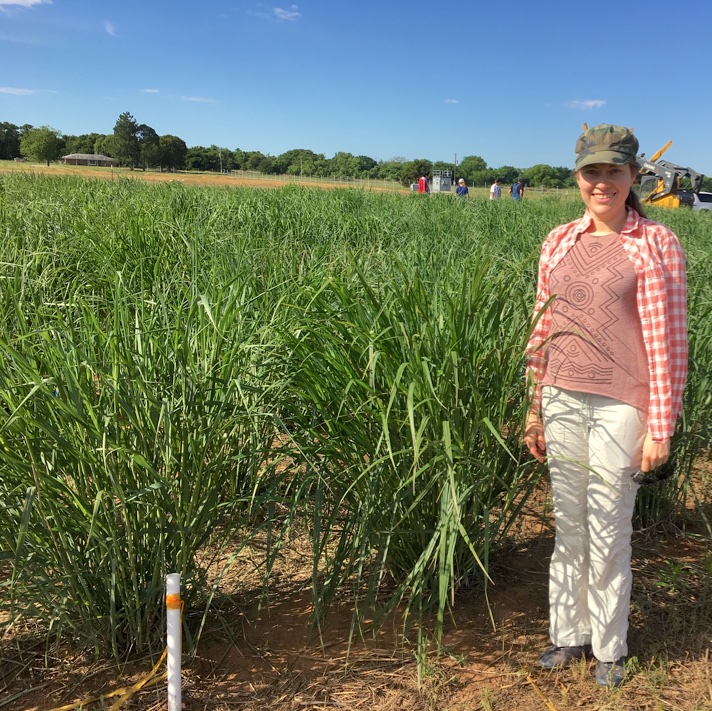Researchers have identified several key compounds that shape the microbial communities dwelling around plant roots and soil, opening up the possibility for agricultural strategies that precisely and sustainably improve plant health and crop yields. One such compound was serotonin, a signaling molecule commonly known for its role in mood regulation. In this context, serotonin was found to enhance plant growth and shape microbial communities living around plant roots under nutrient-rich conditions.

The m-CAFEs Science Focus Area supported metabolite analysis for this study, which entailed identifying the small molecules present in the soil around the roots of switchgrass plants grown under varying levels of nutrients and water. This approach allowed the researchers to uncover the chemical compounds that plants release into the soil under different conditions.
Researchers who contributors to the metabolite analysis for this study include:
EGSB research scientist Kateryna Zhalnina, staff scientist Benjamin Bowen, Division Deputy Director for Science Trent Northen, and postdoctoral researcher Joelle Sasse and research associate Jacob S. Jordan.
Read more on the Biosciences Area news page.
